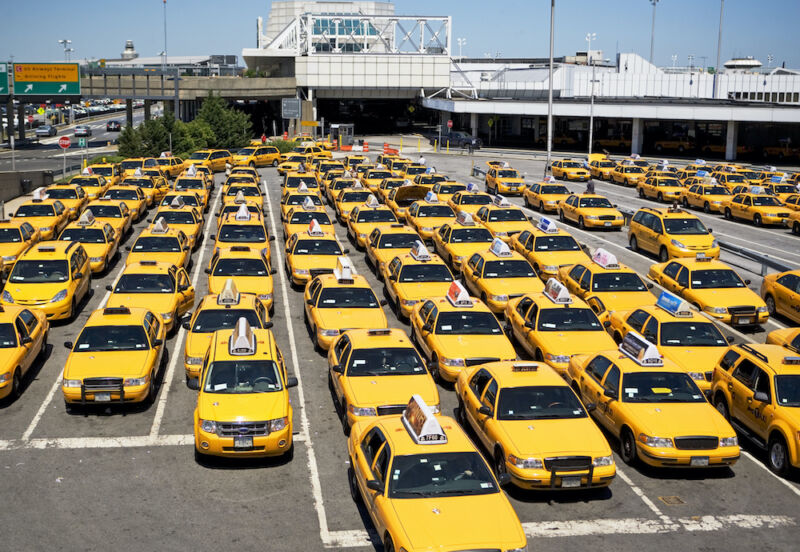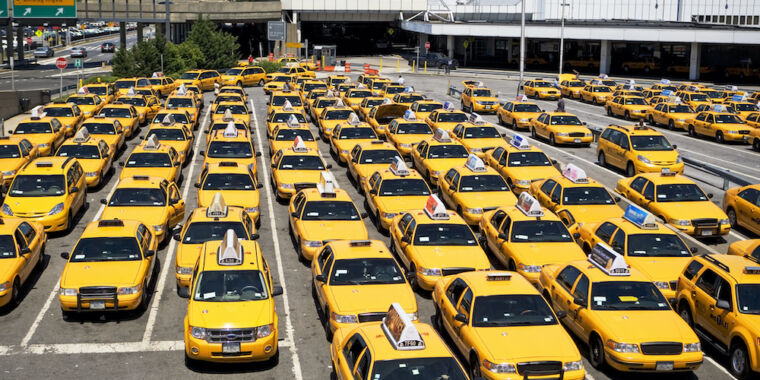[ad_1]

Getty Images
Two men have been charged with participating in a scheme that raked in big money by using a compromised dispatch system at New York’s John F. Kennedy International Airport to allow paying taxis to move to the front of the line.
Daniel Abayev and Peter Leyman, both 48 and of Queens, New York, allegedly participated in a scheme that compromised the electronic dispatch system, federal prosecutors in the Southern District of New York said. Taxi drivers are required to wait in a holding lot. The computer-run dispatch system is designed to ensure that drivers are assigned in the order they arrive.
The defendants, prosecutors said, conspired with Russian nationals to compromise the dispatch system and cause it to move specific taxis to the front of the line. Participants then advertised a service allowing drivers to skip the line in exchange for $10 each time.
Prosecutors said the operation ran off and on from 2019 through 2021. During that time, the scheme drew as many as 1,000 expedited taxi trips per day. To coordinate, the men used large group chats to communicate with taxi drivers. When the service was available, they would send a message that said, “Shop open.” Abayev also sent messages that advised paying drivers how to avoid detection by authorities.
Starting in 2019. Abayev and Leyman allegedly experimented with various ways to access the dispatch system. Methods included bribing someone to insert a flash drive containing malware into dispatch computers, obtaining unauthorized access to the system over Wi-Fi, and stealing tablets connected to the system.
“The members of the hacking scheme also sent messages to each other in which they explicitly discussed their intention to hack the dispatch system,” prosecutors wrote in a statement. “For example, on or about November 10, 2019, Abayev messaged the following to one of the Russian hackers in Russian: ‘I know that the Pentagon is being hacked[.] So, can’t we hack the taxi industry[?]’”
Both men have been charged with two counts of conspiracy to commit computer intrusions. If convicted, they face a maximum of 10 years in federal prison. An indictment filed in federal court is here.
[ad_2]
Source link

